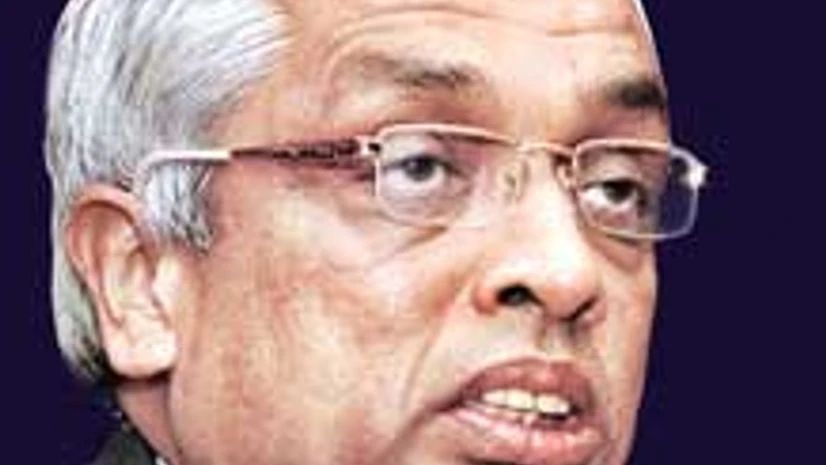India has no choice but to move further on the path of fuller capital account convertibility as it integrates with the global economy. However, taking the plunge now will be a premature step, as the country is not yet comfortable on the fiscal and inflation fronts, said Reserve Bank of India Executive Director G Padmanabhan.
Plus, the financial sector, especially banking, is surely not in the pink of heath, he said in an address over the weekend at a management institute in Mangaluru.
Capital account convertibility would mean no restriction on conversion of the domestic currency into a foreign one to enable a resident to acquire any foreign asset. It also includes enabling a non–resident to acquire a domestic asset on conversion of a foreign currency to the rupee.
More From This Section
Consumer Price Index (CPI)-based inflation has come down over recent quarters. Retail inflation for April eased to 4.86 per cent, the lowest in four months, on the back of another month of declining food prices, according to the Central Statistical Office.
While announcing the monetary policy for FY16 in early April, RBI Governor Raghuram Rajan said CPI-based inflation would remain below the target of six per cent set for January 2016. It will hover around five per cent in the first half of 2015-16 and a little above 5.5 per cent in the second half.
Analysts say the system is, however, yet to reach sustained low inflation. Similarly, the government's fiscal deficit is high. The target is to cut this to three per cent of gross domestic product by March 2018, from four per cent at end-March 2015.
Padmanabhan said there was also a threat of contagion from disturbance in global financial markets in capital account convertibility. The brunt of this has to be borne by the domestic financial system. Though tightly regulated, the financial sector, particularly banking, is not in such good heath. Banks are battling with stressed asset loans, due to economic slowdown and corporate defaults. According to rating agency CRISIL, in 2015-16, gross non-performing assets (NPAs) would rise 20 basis points to 4.5 per cent of advances.
Bad loans are seen rising mainly because of withdrawal of regulatory forbearance on restructuring, and high slippages from restructured assets, CRISIL said.
The RBI executive director said India needed to continue moving towards full capital account convertibility. There is simply no escape from it. It is a moot question as to how fast the movement should be.
That will depend on how quickly we can meet the most important preconditions — fiscal consolidation, inflation control, low NPA levels, low and sustainable current account deficit and strengthening of financial markets. India has already made visible progress on these fronts.
The answer to the query on readiness of a system for full convertibility should be based on economic logic and evidence, not derived from evangelism, he added.

)
